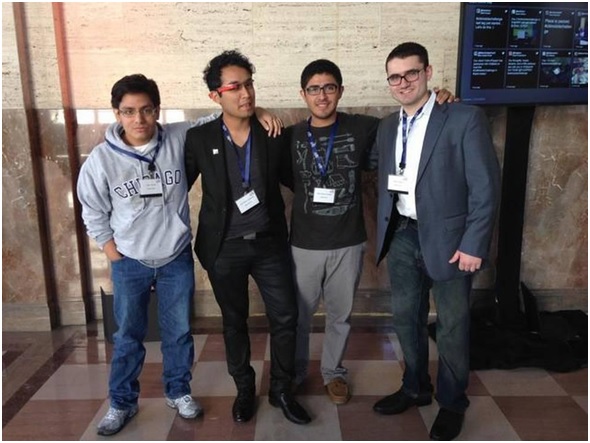The very idea of decentralized Bitcoin and centralized banking seem to be like oil and water: They do not mix. But what if there were such a thing as decentralized banking?
Three university students in south Florida might have the solution to truly decentralized banking. Uwe Cerron, Irvin Steve Cardenas, Juan Daniel Alvarado, and Daniel Doherty, a fourth student from another college, came together to become finalists in the Citi Mobile Challenge, a global competition that invited developers to reimagine digital banking and present solutions.

The four entrepreneurs have combined training in hyper-scale distributed financial systems, decentralized Bitcoin applications, artificial intelligence algorithms, and developing machine learning. The group was drawn from the two universities — Stone Hill College and Florida International University (FIU) — and their company, Master Branch is a startup that competed against 20 other companies for the final prize of US$100,000. For the competition, they named their team Decentral Bank to reflect their ideas.
The team was the only university group in the competition, as well as the only team to present a Bitcoin solution that will allow banks to accept Bitcoin without actually managing cryptocurrencies. They accomplished the task by implementing multisig technology. You can view the white paper here.
The demo presented to Citi Bank offered services such as deposits, server-processing power, bandwidth, and even digital disk space. They used initiatives such as Storj and MaidSafe as inspiration for providing bandwidth; in essence, a combination of Bank 2.0 with Blockchain 2.0.
The network designed by Decentral Bank is a decentralized, off-chain, peer-to-peer design. It brings together individual servers that automatically form voting pools. Once connected, the servers vote when funds are moved in such a way that scheme security is distributed. Anyone can host a server and connect to other servers that are willing to host funds. The solution to the potential of collusion, or the introduction of malware such as badBIOS, is to use proof of guarantee through Bitcoin’s scripting capabilities.
Another protection against such potential problems is to attach a deposit to a host, in the amount that they are willing to host. If that amount is 100 bitcoins, then the host is required to provide a guarantee of 100 bitcoins. But the main feature is providing protection against the massive losses that have been coming from single points of failure and centralized exchanges, such as Mt. Gox, Bitcoinica, Poloniex. Like the exchanges, a hosting server has the opportunity to earn fees through the guaranteed, Bitcoin-backed return on the amount that is hosted as protection for the depositor.
Finally the team designed a special API that would essentially allow Citi to handle Bitcoin by hosting a server. Through this API, Decentral Bank can issue cryptographic receipts to users, which are then used to sign a 2-of-3 p2sh multisignature transaction, ensuring the delivery of Bitcoin only when a cash payment has been made for the Bitcoin.
Did you enjoy this article? You may also be interested in reading these ones:
